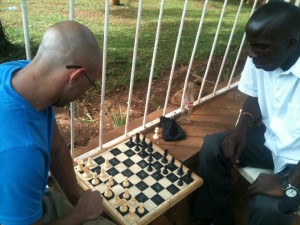Always Something to Learn

I am still learning.
– Michelangelo
There is always something to learn. No matter the age, the ability, the level of skill, the success or life realization, we learn and should seek to learn until we die. It would be arrogant to think that there is nothing to learn, or worse, to think we know everything. Even when it seems that we know something or that we don’t need what is taught, even when we are practicing what they are talking about, I believe we can learn something new each day. The day we stop learning, we stop living. I don’t know about you, but I don’t know everything. In fact, I know much less than what I should know at my age. Hopefully, I’ll live long enough to catch up.
Learning doesn’t have to be focused on a specific topic. It is not about being in school forever. Learning doesn’t have to be strictly about ‘serious’ subjects. It could be something trivial and ‘useless’. Seeking knowledge for the sake of knowledge is a lot of fun. We might never use information we have stored in the brain, but we can become the heroes in the next trivia challenge. My grandfather always said that we don’t need to know everything, but a little of everything enough to sustain a conversation with anyone. Knowledge is not about us, is about others. It is about connecting with people. In order to relate to others it is good to know about them. That is a motivation for learning something new every day.



Cognitive Psychology in Simple Terms
How does cognitive psychology helps you? If you understand how you memorize things then you will do the things that make you memorize more effectively. In education we rely upon this science to develop learning strategies that can be used in practice. Here is where research has an important role. Through observation and other forms of data collection and analysis we get to understand phenomena that then allow us to design ways to help people learn more efficiently. This includes delivering the information in ways that can be processed through different channels or in different ways. People learn in many different ways and some have preferred ways of learning. They are more inclined to get information in a way that is easier for them to receive, process, and understand.
There are so many aspects of cognitive psychology for learning that can be discussed and each one will branch out to more and more intricacies of this fascinating computer we call brain. We can talk about memory, problem solving and critical thinking, language development, understanding math, and how the environment affects mental functions. We can talk about the emotional aspects of mental functions like motivation. We can also talk about the physical aspects that affect cognition. The list can go on forever. We are only exploring the surface. It is important to understand that cognitive psychology is still theoretical and the mysteries of the brain may never be completely revealed. That is indeed the beauty of all of it and what keeps us searching and researching.